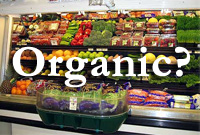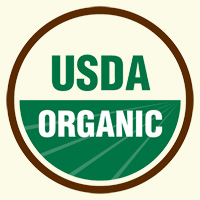 |
||
Ron’s ArticlesBuyer BewareSeptember 2006
I knew I faced an uphill battle. I knew that most people weren’t familiar with the benefits of an organic lifestyle. If anything, they associated organics with tree huggers, vegetarians and aging hippies. But I was determined fulfill the mission that’s painted on all my landscaping trucks. “Saving the world one yard at a time.” WOW! Have things changed. Organics is now one of the hottest marketing trends. Herbs are in. The major manufacturers are flooding the market with herbal and fruit scented detergents and beauty products. Some reference to organic or natural is plastered onto just about every new product hitting the market. The demand for organic foods and home and garden products is going through the roof. With what my wife and fellow firefighters who know me so well might characterize as my obsession to bring organics to the world, I should be ecstatic. Finally, organic foods, cosmetics and garden supplies are available to the masses at reasonable prices at the big box stores. The world will be greener, cleaner and healthier. WRONG! The sorry little secret is that no one is minding the store. Just about anyone can slap a “natural”, “organic” or other seemingly pure and healthy label on any product. While the US Department of Agriculture has enacted regulations regarding organic food products, they are complex and full of loopholes. For example, lots of growers are exempt from certification. And, only about 1% of our food products are ever inspected anyway.
To be certified to handle Certified Organic food, a retailer it must maintain systems that assure that certified organic products never come in contact with conventional products or the bins and shelves that have housed them. The regulations even specify that organic produce cannot be displayed below conventional produce if the retailer uses a misting system. The idea is to make sure the pesticide residue doesn’t drift down on the good stuff. Meeting these standards is real tough at the mega mart. There are other seemingly healthy labels that don’t mean much. Free-range is a good example. The USDA requires that for chickens to be labeled free-range they must have access to the outdoors. But there is no stipulation on how big that area must be or that they take ever take a step outside. So, you can have wall-to-wall chickens in a room with a doggie door out to a 5 foot square patch of grass and label them free-range. And, since the big producers breed chickens to gain the most weight possible in the least amount of time, most of them can hardly walk. So, if we want to improve our health by eating organic - and spend our dollars wisely, we have to make a serious effort to evaluate products ourselves. The best of all possible worlds would be to grow our own food under conditions we can control. Another option is to participate in Community Supported Agriculture. This is a program where you contract for a portion of the output of a local farm. Check out www.localharvest.org and www.pickyourown.org. Farmer’s Markets are a good idea. The next best is to shop at stores that recognize the true value of organics - ideally retailers who only stock organic products from suppliers they know and trust. Think about it. Why are the big guys getting into organics? They smell money. So, they’re going to figure out every loophole and cut any corner to improve their profit margins. I encourage you to buy organic, but do so with your eyes wide open. 
|
|
|


|
||

 The USDA allows for four different levels of “organic” The highest is Certified Organic with the USDA circular black and white logo. That means the product is at least 95% organic from a certified organic farm and has been passed along a distribution chain that is certified at every level. How often to you see this logo on the shelves where you shop?
The USDA allows for four different levels of “organic” The highest is Certified Organic with the USDA circular black and white logo. That means the product is at least 95% organic from a certified organic farm and has been passed along a distribution chain that is certified at every level. How often to you see this logo on the shelves where you shop?